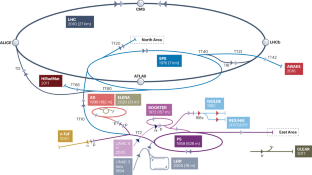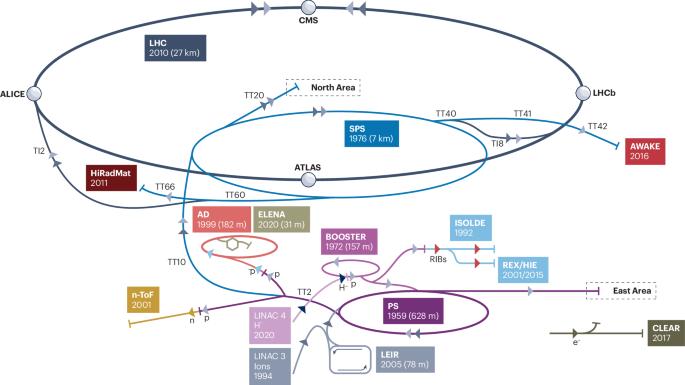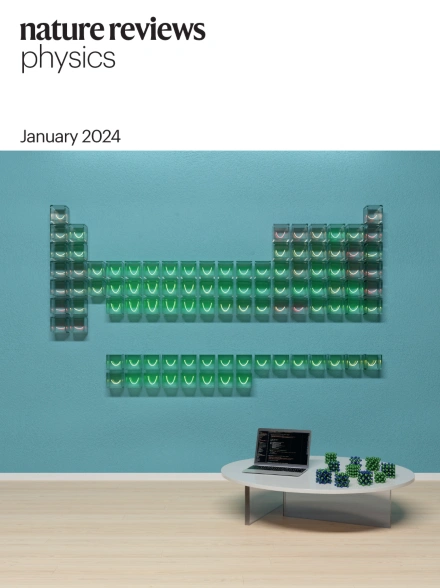欧洲核子研究中心加速器综合体在高能前沿的 70 年
IF 44.8
1区 物理与天体物理
Q1 PHYSICS, APPLIED
引用次数: 0
摘要
欧洲核子研究中心在成立后的最初 70 年里,建造了一系列令人印象深刻的加速器,其中许多至今仍在运行。欧洲核子研究中心 "皇冠上的明珠 "无疑是长达 27 公里的隧道及其基础设施,它建在法国和瑞士边境的汝拉山脉和日内瓦湖之间约 100 米的地下。在这条隧道中,大型电子-正负电子对撞机和大型强子对撞机这两台能源前沿机器在过去 35 年中塑造了高能物理的面貌。该隧道还可以容纳未来的加速器群,它们有可能在未来几十年里进一步确定这一格局。本文章由计算机程序翻译,如有差异,请以英文原文为准。


70 years at the high-energy frontier with the CERN accelerator complex
Over the first 70 years of its existence, CERN has created an impressive portfolio of accelerators, many of which are still in operation today. The ‘jewel in the crown’ of the complex is certainly the 27-km tunnel and its infrastructure, built approximately 100 m underground between the Jura mountains and Lake Geneva on the French–Swiss border. In that tunnel, two energy-frontier machines — the Large Electron–Positron Collider and the Large Hadron Collider — have, for the past 35 years, shaped the landscape of high-energy physics. The tunnel could also house future accelerator complexes that have the potential of further defining that landscape for decades to come. CERN marks this year a major anniversary, of 70 years at the forefront of accelerator technology for high-energy physics. The story of its accelerator complex and 27-km tunnel — a major achievement in engineering and physics — is still unfolding.
求助全文
通过发布文献求助,成功后即可免费获取论文全文。
去求助
来源期刊

Nature Reviews Physics
Multiple-
CiteScore
47.80
自引率
0.50%
发文量
122
期刊介绍:
Nature Reviews Physics is an online-only reviews journal, part of the Nature Reviews portfolio of journals. It publishes high-quality technical reference, review, and commentary articles in all areas of fundamental and applied physics. The journal offers a range of content types, including Reviews, Perspectives, Roadmaps, Technical Reviews, Expert Recommendations, Comments, Editorials, Research Highlights, Features, and News & Views, which cover significant advances in the field and topical issues. Nature Reviews Physics is published monthly from January 2019 and does not have external, academic editors. Instead, all editorial decisions are made by a dedicated team of full-time professional editors.
 求助内容:
求助内容: 应助结果提醒方式:
应助结果提醒方式:


